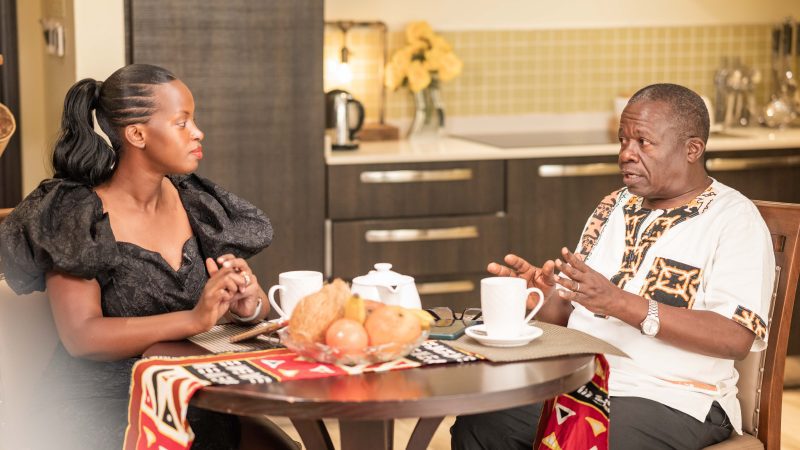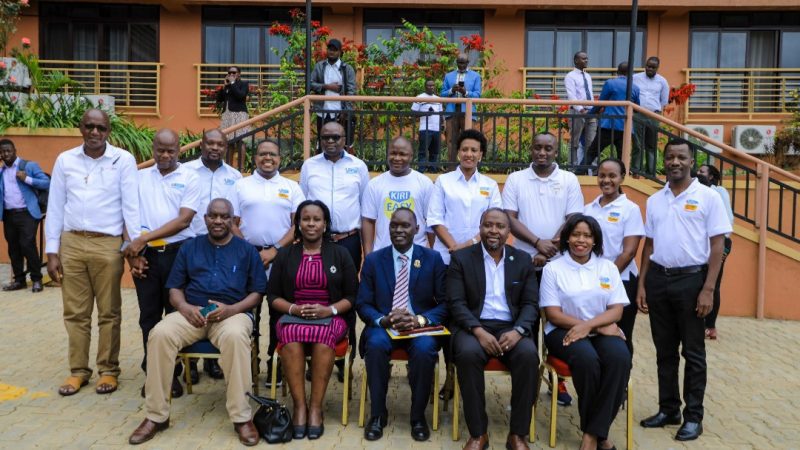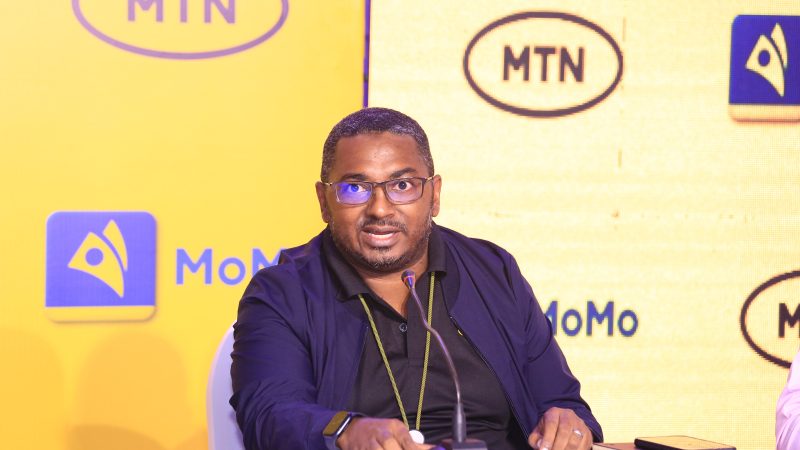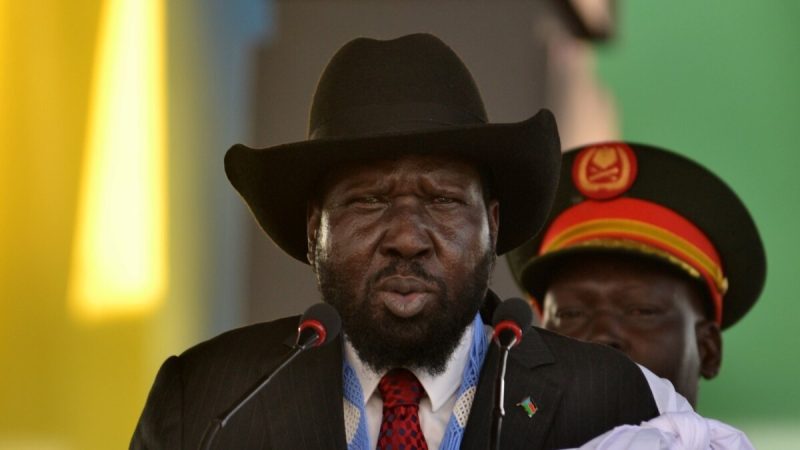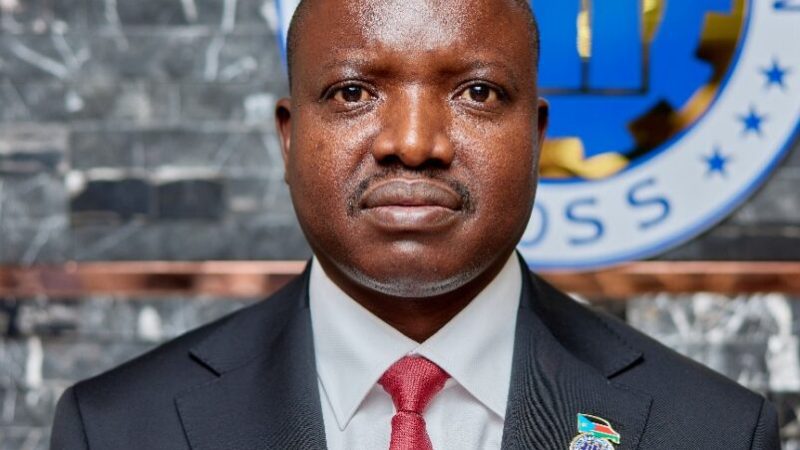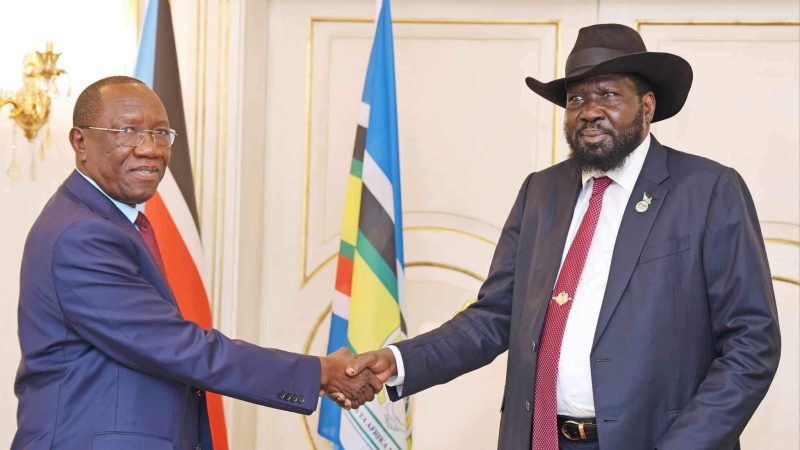By Andrew M. Mwenda
Inside the Rwanda-Uganda conflict
Let me do what politicians always do – claim they run for office due to popular demand. Many people have been asking me to comment on the heightened tensions between Uganda and Rwanda. By writing this article, I am yielding to popular pressure. I think Uganda and Rwanda will most likely degenerate into war; something I have shared with friends since October last year and this is the reason it is critical that I share my views.
The current standoff is happening only weeks after President Yoweri Museveni gave a highly acclaimed speech to fellow African heads of state at the African Union in Addis Ababa in defense of regional integration and President Paul Kagame assumed chairmanship of the East African Community. That the two could be close to war shows the distance between aspiration and action.
The problems between Uganda and Rwanda can easily be solved if Museveni upheld his core ideological position i.e. that regional integration is critical for Africa’s future, and that the differences between our countries are smaller compared to the strategic need for and benefits of cooperation. From this view, if any two nations have differences they should seek to listen to each other and solve them. The problem between Uganda and Rwanda – as I know it – is the refusal of Kampala to listen to the concerns of Kigali and/or put her own grievances on the table for discussion.
For example, Rwanda has complained severally to Uganda both formally and informally about the presence of persons hostile to the government in Kigali. It says these people abuse their refugee status in Uganda by indulging in politically hostile actions against the government in Kigali. Rwanda has further complained that these persons (many of whom it has named) are actively aided by Ugandan intelligence to recruit Rwandans from refugee camps and take them to DR Congo for training in rebel camps.
Kigali has always wanted and actively sought to discuss these matters with Kampala. It has been met with stone silence. Instead, Kigali has been reading in Ugandan traditional and social media that it is the government of Rwanda planning regime change in Kampala. Websites allied to State House in Uganda are leading this charge. Some security chiefs in Uganda have said similar. Yet Kampala has never made a formal or informal complaint to Kigali on these allegations. This has placed the government of Rwanda in a difficult situation on how to respond to media rumors when government of Uganda has never owned them.
This situation could have been arrested long ago. However, all efforts to begin a dialogue between the two countries have been thwarted by Uganda. The most serious one was mid last year when I worked with Gen. Salim Saleh to send a delegation to Kigali or invite a Rwandan delegation to Kampala for discussions. We even greed on the team of Ugandan officials. I talked to Kagame who readily nominated a team of officials to meet the Ugandan side. On the last minute Museveni personally cancelled the plan saying he will handle this matter directly with Kagame.
I personally tried several times to interest Museveni in the issues Rwanda was raising but he either expressed indifference or paid leap service or said he will discuss them directly with Kagame, which he rarely did. This was especially frustrating for me because between 2011 I worked closely with the Ugandan president to repair our relations with Kigali. During that time I was impressed by Museveni’s boldness, courage and strategic foresight. His subsequent loss of interest without explanation is frustrating but also illuminating.
While Museveni has promised to discuss these matters directly with Kagame and which he has done on occasion, there has been no follow up by Kampala. I am aware that whenever Museveni has met Kagame, he has never raised the issue of regime change by Kigali against him. Kagame has told Museveni that Uganda’s Chieftaincy of Military Intelligence (CMI) actively works with Rwandan dissidents. Museveni has promised to verify the claims and end the problem. The last I heard is that Uganda sent one such person to Norway.
CMI has been detaining Rwandan nationals in illegal facilities, torturing and deporting them to Rwanda. CMI accuses these people of spying but has never produced them before courts of law. Neither has Uganda complained to Rwanda about this. Kigali has protested these detentions and deportations formally and informally. Again it has been met with stone silence. Meanwhile Uganda accuses Rwanda of kidnapping and killing Rwandans in Uganda and of seeking regime change but never provides names or any evidence and has never made a formal or informal protest to Rwanda.
I have told officials of Uganda that even if these allegations of kidnappings and killings are true, Rwanda is supposed to be our ally. When an ally behaves like that, you don’t stop talking to them. Israel is an ally of America. On many occasions its intelligence services have been caught either kidnapping people from America or infiltrating US intelligence and stealing highly classified information. These actions by Israel have been a great irritant to the USA, but they have never formed a basis for the break in relations. Recently America was caught tapping calls of leaders of nations among her NATO allies but this did not lead to the break in relations.
Museveni is one of the most strategic minded persons I have read and listened to. I do not think he would preside over the collapse of a strategic relationship with an ally because of such infringements. Such infringements are the reason to dialogue, not break-up. The only conclusion I can infer from his attitude towards Kigali is that either he does not consider Rwanda an ally or he does not think our relationship with her is strategic – or both. I have increasingly come to believe that Museveni sees Kagame’s Rwanda as a threat, a factor I will write about in detail in my next post.
Now here is the slippery slope to war: if Rwanda is convinced Kampala is seeking regime change against Kagame, it will not sit idly and watch. Uganda has enemies too. It follows that Kigali will be driven to aid them. Given the interpenetration of the two societies and government systems, Kampala will finally get the hard evidence of this aid. Thus what begun as empty claims that Kigali is seeking regime change against Museveni will now be fact with evidence!
From my experience dealing with officials of the government of Rwanda, most especially Kagame personally, I have been struck by their desire and determination to build good relations with Uganda. Kagame personally treats good relations with Uganda to be of utmost strategic importance. In my many years working with him on Uganda-Rwanda issues, he has never wavered in his determination to pursue a better relationship with Kampala. Indeed, he has always been willing to bend backwards to get this relationship to work. However, he is not willing do seek a good relationship on his knees.
Museveni has personally told me there is no fundamental problem between Uganda and Rwanda. However, Kagame has serious charges against Uganda, the most serious being regime change. There are other strategic issues of an economic nature but they are not as alarming. Therefore, in trying to repair the relations between the two governments, the first issue to resolve is the accusation of regime change by Kigali against Kampala. But since Kampala’s rumor mill is making similar allegations, Uganda should place them on the table – formally and/or informally. Official silence and informal denials are unlikely to solve anything.
What one gets from Kampala’s attitude towards Kigali is what Batooro call omugayo – despise, under-look, disregard. Yet for all Museveni’s talk of regional integration and other such strategic considerations, Kampala’s attitude towards Kigali only shows he is not willing walk the talk. Uganda exports goods worth $250m per year to Rwanda. Rwanda only exports a paltry $16m. Uganda has over 30,000 professionals and semi skilled people working in Rwanda. Ugandan companies have multi million dollar contracts to supply goods and services in Rwanda, others have made investments there. And Rwanda sends a large number of students to study in Ugandan schools from primary to university, not to mention over 150,000 tourists per year and they stay the longest.
It is possible therefore that Uganda earns over $500m in foreign exchange from Rwanda – which is about 8.5% of our export earnings and 2.2% of our GDP. This is income to Ugandan farmers, traders, manufactures, and other investors. If such strategic considerations influenced Uganda’s attitude towards Rwanda as Museveni often presents it, then Kampala should be the one working frantically to improve relations with Kigali. Look what has happened at the border when Kigali closed it – Ugandans are losing money!
The strategic deficit in Kampala’s thinking is reflected in the fact that to speak positively about the government of Rwanda generally and Kagame particularly is considered unpatriotic in State House circles. One does not need to love Rwanda or Kagame to seek a good relationship with our southern neighbour. One only needs to love Uganda – her farmers, professionals, manufactures and other investors who make a lot of money from Rwanda. And this is actually the content of the keynote speech Museveni gave in Kigali at the 25th anniversary of the founding of the RPF in December 2012.
It is very possible that Uganda has legitimate grievances against Rwanda. However, in my many years working on Rwanda-Uganda matters, I have never been presented with any. Instead, elements in the security and rumor mongering services in Kampala have made many allegations against Kigali, which they have been unwilling to substantiate or formally or even informally complain about to Rwanda. At any rate, if they have credible claims against Rwanda they can simply present them to the government in Kigali. I suspect Museveni had fears about Rwanda he is unwilling to put on the table, a factor accentuating this conflict. My advice is that pretense invites ambiguity; candor breeds clarity.
Many people are accusing Rwanda government of overreacting. Anyone can justifiably be critical of many aspects of the way Kigali has reacted. But following the story above one can easily read Kigali’s dilemma. I suspect the decision to close the border, if true, is designed to escalate the situation so as to induce Kampala to talk, not to spark a war. Short of this, I do see what else Kigali would have done when all formal and informal requests for discussions to resolve the differences were met with indifference and stone silence.


